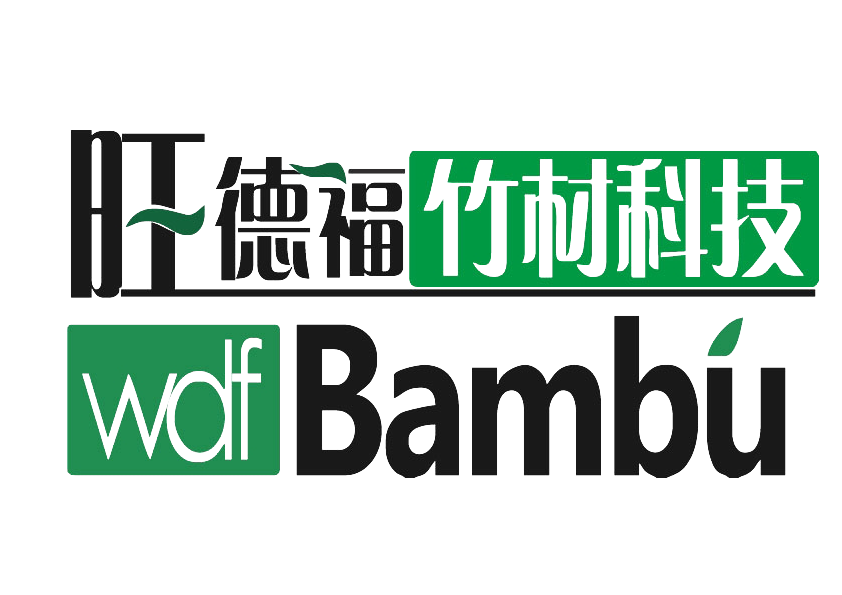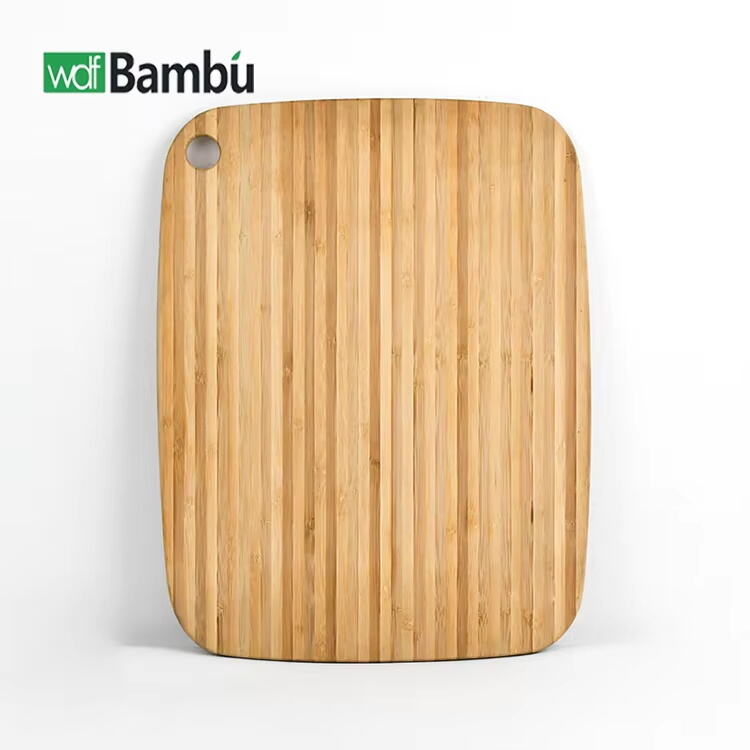Introduction
Cutting boards sit at the heart of every kitchen, typically made from one of three main materials: bamboo, wood, or plastic. Bamboo boards have gained popularity lately thanks to being eco-friendly, light on the hands, and naturally resistant to bacteria growth. Plus, since bamboo grows back so fast compared to other woods, it makes sense for folks concerned about environmental impact. Wood cutting boards, especially those made from hard maple or sturdy oak, bring a certain charm to countertops that many home cooks appreciate. The look varies quite a bit depending on what kind of tree was used, with some lasting decades while others need replacing sooner. Plastic boards tend to be the budget choice most people reach for when shopping. Made mostly from polyethylene, they're easy to carry around and come in all sorts of bright colors and fun shapes that match different kitchen styles without breaking the bank.
When it comes to picking between bamboo, wood, and plastic cutting boards, there's no shortage of opinions from professional chefs down to weekend cooks. People care a lot about things like how green the material is, how easy it stays clean, and how well it actually works when slicing veggies or meat. A lot folks wonder lately if one material really wins out over others. Bamboo versus wood versus plastic? That's exactly what we're looking at here. We'll check out what makes each board tick and see if bamboo deserves all the hype compared to those classic wooden boards most people grew up with.
Benefits of Bamboo Chopping Boards
Eco-Friendliness: Rapid Renewability of Bamboo
When it comes to chopping boards, bamboo really shines as an environmentally friendly option because it grows so fast. Hardwood trees can take many decades before they're ready to cut down, but bamboo matures fully in just 3 to 5 years. That means we can harvest it regularly without having to clear forests, which is great news for the planet. What makes bamboo even better? It actually soaks up carbon dioxide from the air while growing, helping fight climate change at the same time. Choosing bamboo products supports farming methods that are kinder to nature. For anyone wanting to live more sustainably and cut down on their impact on Earth, going with bamboo makes sense both practically and ethically.
Durability: Resistance to Scratches and Warping
People love bamboo chopping boards because they last forever without getting scratched or warped. The wood itself is pretty tough stuff actually, much harder than softwoods like pine that just seem to collect those annoying knife marks over time. A bunch of research supports what most home cooks already know from experience these boards hold up really well through all that daily chopping action in kitchens everywhere. Sure no wood is completely immune to water damage but bamboo holds together way better than other options out there on the market today. Just make sure to let them air dry properly after washing instead of leaving them damp somewhere where mold might start growing and watch those boards keep going strong for years to come.
Knife-Friendly Surface: Silica Content vs Wood/Plastic
Bamboo cutting boards have this special quality that works well with knives because they contain natural silica. We find silica in things like ceramics and glass too. This stuff actually creates a smoother surface where knives glide better. Knives stay sharper much longer on bamboo than on other woods that tend to be softer and wear down blades faster. Plastic boards might seem gentle on blades at first glance, but honestly they just don't hold up over time when someone is chopping vegetables or slicing meat regularly. Most kitchen experts these days suggest switching to bamboo boards since they strike a good balance between being hard enough to preserve knife edges yet not so harsh that they damage them. Sure, there are chefs who worry about bamboo being too tough on their precious knives, but most home cooks will find that their knives simply don't get as dull using bamboo as they do with cheaper alternatives.
Comparison with Wood Chopping Boards
Advantages and Disadvantages of Wood
Wooden cutting boards have become pretty common in home kitchens because they look nice and tend to hold up well over time. The way the wood grains show through gives them character that plastic just can't match. But there's a catch too. Wood tends to soak up water really easily, so without proper care these boards will warp or crack eventually. Most folks find themselves needing to rub some sort of food safe oil into the surface every few months to keep it from getting dry and brittle. Compared to something like a plastic board that basically needs nothing but a quick wash after use, this extra work definitely puts people off sometimes. Still, plenty of cooks love how traditional wooden boards feel under their hands despite all the maintenance involved.
Bamboo vs. Wood in Terms of Maintenance and Longevity
Looking at bamboo versus wood boards, how much work they need and how long they'll last matters a lot. Bamboo generally needs less attention because it stands up to moisture pretty well on its own. No constant oiling required, something many people appreciate if they want something that just works without fuss. Still, neither material will last forever unless treated right. Most folks find their bamboo boards hold up better against daily abuse thanks to that extra firmness. Wood has its perks too though. Some hardwoods actually seem to fix themselves after getting nicked by knives, something bamboo just can't do. So when picking between them, think about what kind of board fits your cooking style best. Someone who chops veggies all day might prefer bamboo's durability, while someone who values aesthetics might go for wood despite needing occasional maintenance.
Comparison with Plastic Chopping Boards
Hygiene and Ease of Cleaning
Many people love plastic cutting boards because they go right into the dishwasher after a messy meal prep session, which makes sense for those hectic kitchen days. Bamboo cutting boards bring something different to the table though. They actually fight back against bacteria thanks to certain qualities in the wood itself. The way bamboo is structured lets it soak up bacteria and germs, basically wiping them out faster than most would expect. A research paper from the Journal of Bacteriology showed that wooden surfaces including bamboo can trap bacteria and stop them from moving around so easily. Plastic just doesn't do this stuff. Germs stick around on plastic surfaces, particularly in all those little grooves where knives cut through the board over time. That means there's a higher chance of getting sick from cross contamination. For anyone concerned about keeping their kitchen clean and safe, bamboo seems to win out over plastic every time.
How Bamboo Fares Against Plastic in Terms of Odor and Stain Resistance
Bamboo is really good at keeping smells away, something many people find frustrating with plastic cutting boards that seem to hang onto food odors forever. Most chefs will tell anyone who listens that plastic tends to soak up those strong smells, especially when working with stuff like garlic or onions. And let's not forget about stains either. Plastic boards get marked up easily by colorful foods like beets and turmeric. Bamboo boards on the other hand just don't have these problems. They stay cleaner and fresher much longer. One chef we talked to at Cook's Illustrated mentioned how the dense nature of bamboo actually stops bad smells and stains from getting absorbed into the wood grain. That makes bamboo a much better choice for anyone who wants their kitchen to smell nice without constantly worrying about lingering odors after meal prep. The way bamboo naturally resists these issues means it stays fresh looking and smelling even after countless uses.
Conclusion
When looking at bamboo against wood and plastic cutting boards, each material brings something different to the table. Bamboo gets a lot of attention these days because it grows fast, lasts longer than most woods, and doesn't dull knives as quickly. That makes it great for people who want their kitchen stuff to be kinder to the planet. Wood boards definitely have that classic look many chefs love, plus they're easier on blade edges. But they need regular oiling and cleaning to stay in good shape over time. Plastic options win points for being light and simple to clean after messy meals, which explains why so many home cooks reach for them. However, anyone who values sharp knives might find themselves replacing blades sooner when using plastic. What works best really comes down to how often someone cooks, what kind of food prep they do most, and whether they mind spending extra time maintaining their equipment.
Which Material is the Best Choice Based on Specific Needs
When picking out a cutting board material, what works best really depends on what kind of cook someone actually is. Home cooks concerned about going green without spending too much time on upkeep often find bamboo boards pretty great since they last forever and come from sustainable sources. Many professional chefs still swear by wooden boards though because wood naturally fights bacteria growth and looks nicer on display during service. The folks who only chop veggies once in a while usually grab plastic boards instead. They're cheap at the store and just toss them in the dishwasher whenever needed. At the end of the day, nobody wants to waste money or deal with complicated cleaning routines. So whether it's bamboo, wood or plastic, most people end up making their choice based on how much cash they have available, how often they actually cook meals at home, and how much effort they're willing to put into keeping things clean between uses.
Frequently Asked Questions
Are bamboo chopping boards better for the environment?
Yes, bamboo chopping boards are considered more eco-friendly due to their rapid renewability and low environmental impact thanks to fast growth and carbon sequestration capabilities.
How should I maintain a bamboo chopping board?
Bamboo chopping boards require less maintenance than wood. Keep them dry when not in use and occasionally oil them if desired for longer durability.
Do bamboo boards dull knives?
Bamboo boards generally do not dull knives as quickly as some wood boards, due to their smooth, silica-rich surface.
Can bamboo chopping boards be put in the dishwasher?
No, itâs best to avoid putting bamboo chopping boards in the dishwasher as the high heat and moisture can warp them.



 Home
Home